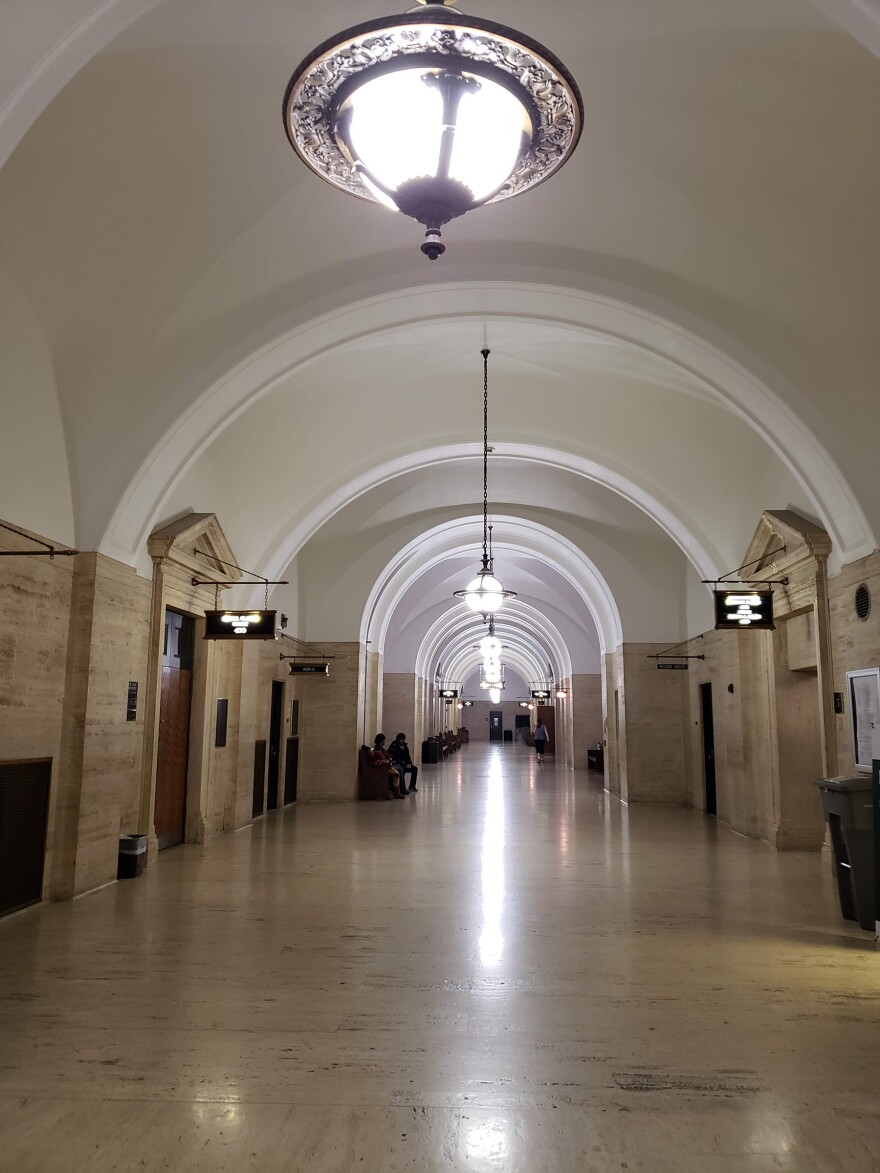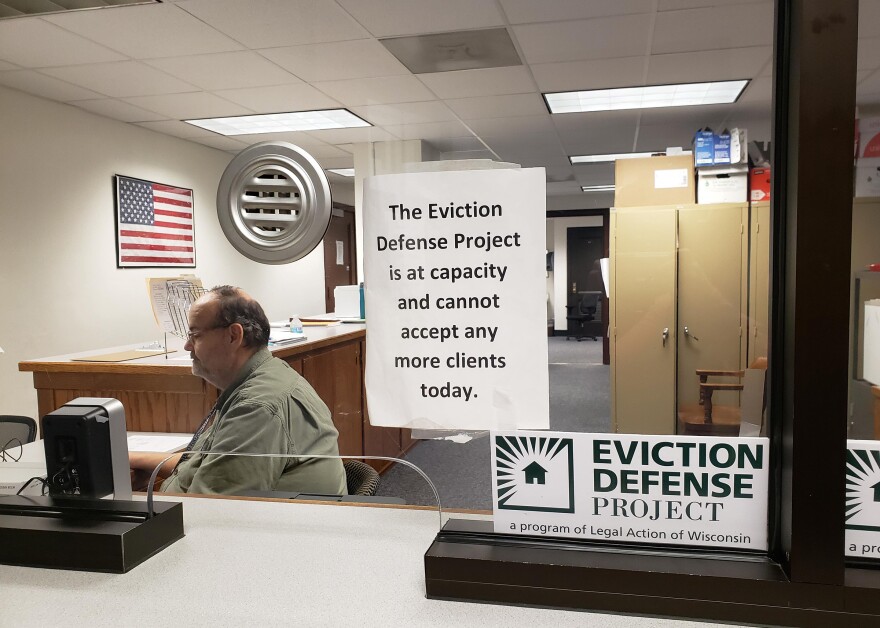Around half a million people need legal aid in Wisconsin and can't afford it. One main reason they need legal aid: eviction.
That's why Legal Action of Wisconsin — the largest provider of legal aid services for low income people in southeastern Wisconsin — set up the Eviction Defense Project.
Around 1 p.m., elevators open onto the fourth floor of the Milwaukee County Courthouse. People trickle off and head to room 400 — where eviction cases are heard. Right across the hall sits the Eviction Defense Project. There, eligible tenants who are being evicted can get free legal services, explains head paralegal Don Tolbert.
"They come in, we screen them for eligibility, and then we have them meet with our volunteer attorneys who can either give them advice, negotiate with the landlord and actually represent them in court that day," Tolbert says.
READ: Milwaukee's Legal Aid Society Takes On Neighborhood Lawyering
He says there are about 14,000 eviction cases filed in Milwaukee County every year. The majority of those folks — almost 90% — are unrepresented, he adds. The Eviction Defense Project takes a bite out of that statistic, with 601 cases opened so far in 2019.
So, what's the root of the problem?
"Well, there's one reason why people are facing eviction, and that's poverty. That's really what it comes down to," Tolbert explains.

Sofia Ascorbe is a staff attorney on the project. She says lawyers negotiate and set up realistic stipulations, in ways clients may not be able to do themselves.
"That might look like a client having to move out by a certain date or having an extended payment plan to make for the costs that they may have missed, or a combination of both," she says.
Ascorbe says lawyers also can defend clients by showing a tenant paid rent or proving a landlord is acting illegally.
"It is very rare the day we see an actual eviction judgment rendered against one of our clients," notes Ascorbe. "And I think that's just a testament to how important advocacy is and representation is for tenants who are going through the eviction process."

But the Eviction Defense Project doesn't have the resources to take on every case, says Deedee Peterson, executive director of Legal Action of Wisconsin. So, the goal is to have the most impact given the resources.
Peterson says one example is CCAP — the online court record system.
"When somebody serves you with an eviction that creates a record on CCAP, and that record is always there — whether the eviction happened or not, and whether the eviction was legal or not. Or done legally or not," she explains. "Your eviction record just because it was filed against you is always on CCAP."
That means that future landlords and employers see the person as a risk, even if there was no ultimate eviction. Lawyers for the project kept raising that issue, says Peterson, and now judges are sealing more case records — even for the unrepresented.
Back in court, a woman who wanted to go by the name Shawn Johnson just had her case called. She says she’s had the same landlord for almost two decades, but she started struggling.

"I did fall on hard times. I'm dealing with emotions, depression, PTSD. I’m dealing with two sick kids right now, very small. My 1-year-old has a lot of breathing problems and motor-skill problems," Johnson says.
She fell off her payment plan and her landlord served her with an eviction notice. While in court, she heard about the Eviction Defense Clinic.
"They was announcing it in the hallway when I came," she says. "And so I said 'yeah' because I didn’t know what to do — I've never been evicted. So I come and they helped me out a lot, and I really appreciate them. So, it's good to get legal advice, it’s good to come down here and get help."
Her lawyer got her an updated payment plan, more time to leave the apartment, and, importantly, no eviction on her record.






